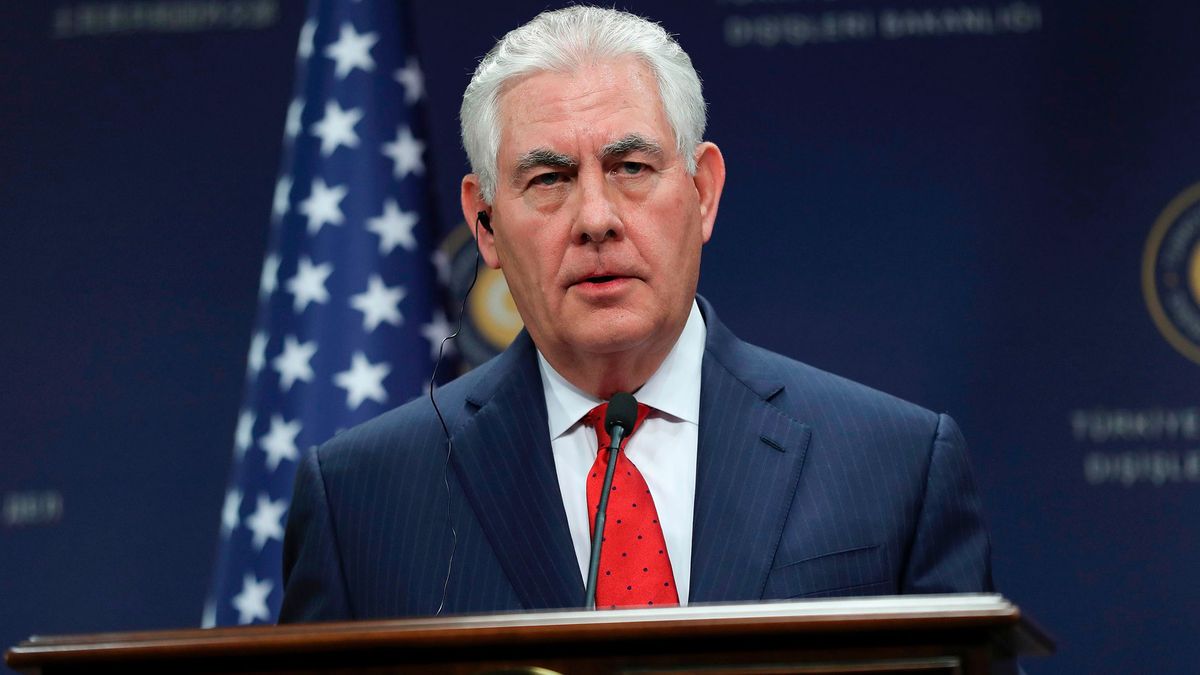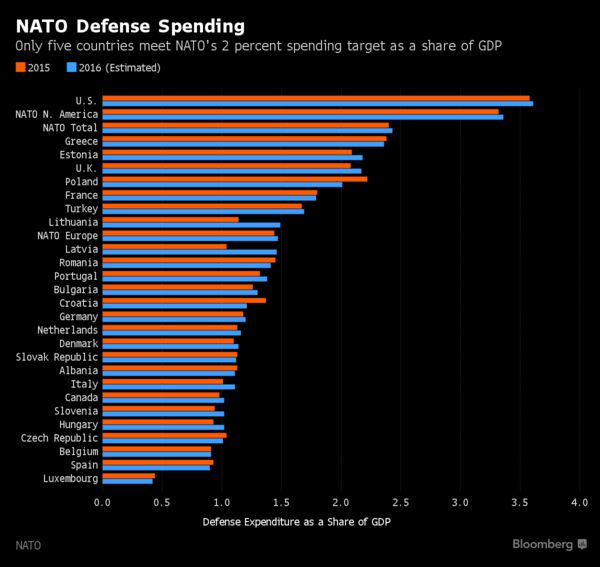Tillerson and Mattis Blast Russia for Aggression

EghtesadOnline: The top U.S. diplomat and the Pentagon’s chief stressed the importance of NATO and criticized Russia for aggression and meddling in other countries’ affairs, easing European allies’ concerns about President Donald Trump’s commitment to trans-Atlantic security.
In his first appearance at a meeting of the North Atlantic Treaty Organization, Secretary of State Rex Tillerson sought to assuage worries that the new administration would seek closer ties with Russia at NATO’s expense, particularly after Trump said during the 2016 presidential campaign that the alliance was “obsolete.”
“Let me be very clear at the outset of my remarks: the U.S. commitment to NATO is strong and this alliance remains the bedrock for trans-Atlantic security,” Tillerson said Friday in Brussels. “The NATO alliance is also fundamental to countering both nonviolent, but at times violent, Russian agitation and Russian aggression.”
According to Bloomberg, he said U.S. sanctions on Russia for annexing Crimea “will remain until Moscow reverses the actions that triggered our sanctions” and “we will continue to hold Russia accountable.”
Defense Secretary James Mattis, a retired general known for his straight talk, was even more outspoken. At a briefing in London on Friday, he said Russia’s “violations of international law are now a matter of record -- from what happened with Crimea to other aspects of their behavior in mucking around inside other people’s elections, that sort of thing.”
It was a blunt reference to Russia’s hacking and leaking of Democratic documents in last year’s American presidential election, a campaign that U.S. intelligence agencies found was aimed at hurting Trump’s rival Hillary Clinton and ultimately at helping him win.
Russian Hacking
The comments are the latest sign that Trump’s efforts to establish closer ties with Moscow are languishing amid the uproar over hacking.
The Republican-led Senate Intelligence Committee held its first public hearing on the topic on Thursday, one of several U.S. probes underway on Russia-related issues and whether anyone close to Trump collaborated with Russia in the hacking effort. Later that day it emerged that Trump’s former national security adviser, Michael Flynn, told investigators that he’s willing to be interviewed in return for immunity from prosecution.
Tillerson had stoked anxiety among the 28-member NATO when he initially indicated he wouldn’t be able to attend the foreign ministers’ meeting because its original date conflicted with a summit in Florida between Trump and Chinese President Xi Jinping. Nerves also were rattled when Tillerson said that he would go to Russia for meetings with top officials days after the Xi meeting.
Even after Friday’s event was rescheduled to accommodate him, Tillerson persuaded the alliance to shorten its summit to one day from two and then attended it for only a few hours. He left before NATO Secretary General Jens Stoltenberg delivered his closing remarks.
Well-Received Remarks
Still, NATO officials, who asked not to be identified because they weren’t authorized to speak publicly, said Tillerson’s remarks on Friday were well-received by others at the meeting and that the atmosphere was positive.
Tillerson emphasized that the top U.S. national security priority is the fight against terrorism. He said NATO could contribute more, particularly in the area of cybersecurity. When he arrived in Brussels before the meeting, Tillerson said the other top U.S. priorities were to ensure NATO has the resources it needs and to discuss its force posture, “particularly Eastern Europe in response to Russia’s aggression in Ukraine and elsewhere.”
At the same time, Tillerson repeated demands that other alliance members meet pledges made in 2014 to spend 2 percent of their gross domestic product on defense. In February, Mattis used his first NATO meeting to warn European governments the U.S. could scale back its pledges to defend Europe if allies don’t increase their spending.

Tillerson said NATO members should agree at a May gathering of their leaders that they will have either met the spending commitments -- or come up with a plan to do so -- by the end of the year.
Currently, the U.S. accounts for about 70 percent of the alliance’s overall defense expenditure, and just five NATO members meet the 2 percent target. Alliance members pledged in 2014 and then again last year to step up efforts to meet the spending goal by 2024.


